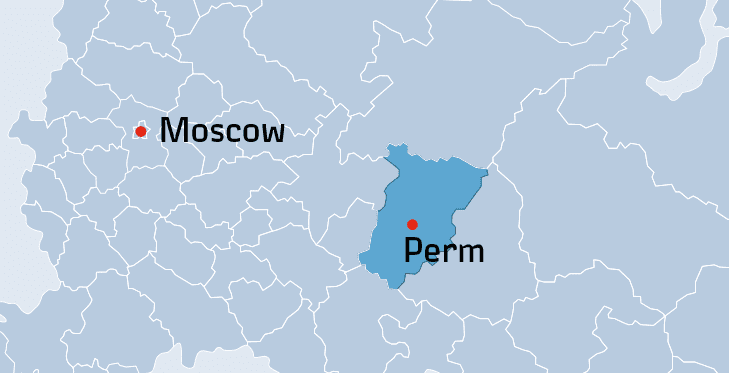High-potential projects
Priority investment projects in 2018
This section outlines the priority and most capital-intensive investment projects of Russian Railways. Funding for these projects is provided by Russian Railways, the National Wealth Fund, the federal budget, and the city of Moscow. The amount of financing for investment projects is based on the mid-term Investment Programme of Russian Railways approved by the Company’s Board of Directors.
The investment project is aimed at the expansion and renewal of railway infrastructure to increase carrying capacity on routes to Far Eastern seaports and border crossing points.
The carrying capacity will increase 1.5-fold over six years to 180 mln tonnes. Containers from Vladivostok will be delivered to Russia’s western border in just 7 days.
The total cost of the project is RUB 562.4 billion. The Russian Railways Investment Programme for 2018 provides for the allocation of RUB 86.2 billion for the project, including RUB 41 billion by Russian Railways and RUB 45.2 billion by the Russian National Wealth Fund.
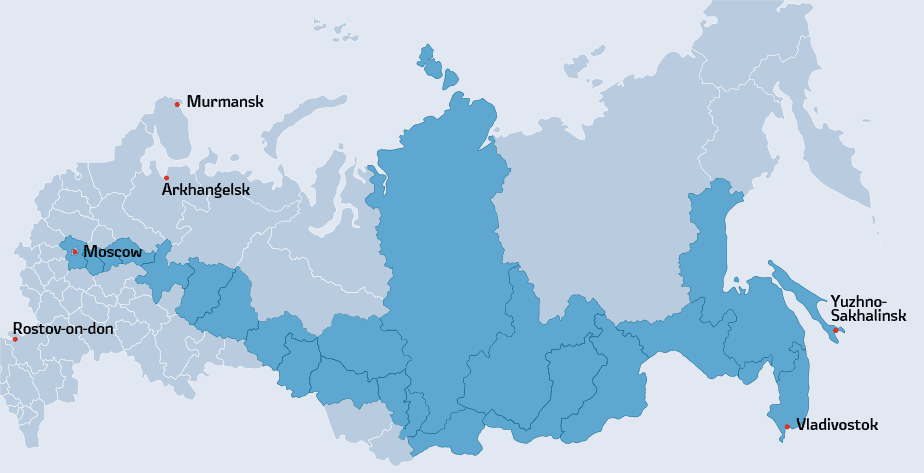
Freight shipments to the ports of the Azov-Black Sea basin account for a significant portion of rail freight traffic within the Southern Federal District.
Projects to expand the deep water sea of Taman already featuring an oil terminal operated by Tamanneftegaz and construct a dry bulk area for dry bulk, grain, container, and other cargoes will significantly contribute to higher freight turnover through ports in the Southern Federal District.
The total cost of the project is RUB 155 billion. The Russian Railways Investment Programme for 2018 provides for the allocation of RUB 42.1 billion for the project, including RUB 22 billion by Russian Railways and RUB 20.1 billion from the federal budget.
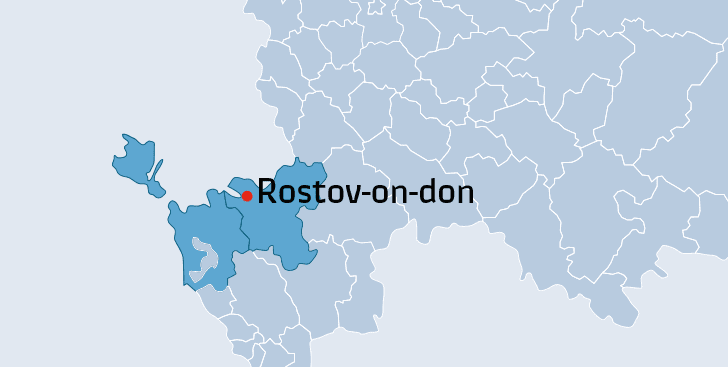
The launch of a regular passenger service on the Moscow Central Circle (MCC) in 2016 marked a milestone in the development of the Moscow Region.
Overall, 138 million passengers were carried in 2016–2017, and the passenger traffic continues to grow. There is already a clear need to further develop the MCC – increase throughput and carrying capacity, reduce time intervals, and thereby develop passenger and rail infrastructures.
The total cost of the project is RUB 155 billion. The Russian Railways Investment Programme for 2018 provides for the allocation of RUB 31.1 billion for the project, including RUB 12.1 billion by Russian Railways, RUB 14.6 billion from the federal budget, and RUB 4.4 billion by the Moscow Government.
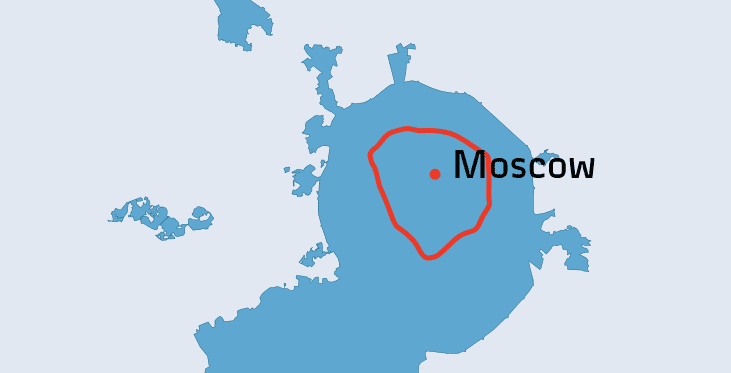
The project is aimed to support the anticipated freight flows around the ports of the North-Western basin, which are projected at 145.6 mln tonnes. The project provides for the expansion of the Volkhovstroy–Murmansk link to increase network throughput capacity on the far approaches to the port of Murmansk.
The total cost of the project is RUB 253.6 billion. The Russian Railways Investment Programme for 2018 provides for the allocation of RUB 17 billion for the project by Russian Railways.
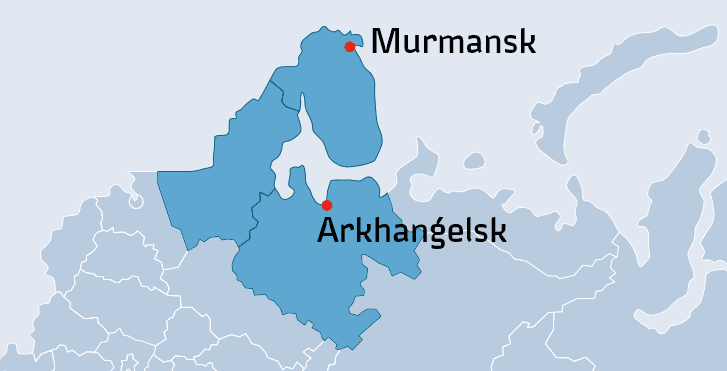
Construction of the Moscow–Kazan High-Speed Railway (the Moscow–Kazan HSR) is Russia’s pilot high-speed railway project. The Moscow–Kazan High-Speed Railway will be the first section of the new Eurasian transport corridor. The project provides for the extension of high-speed railway service to Yekaterinburg in the medium term, and further to Berlin in the west and Beijing in the east over the longer term.
The investment project will reduce fourfold the travel time between Moscow and Kazan, from 14 to 3.5 hours, and the travel time between Nizhny Novgorod and Kazan will be reduced sevenfold, from 10.5 to 1.5 hours.
The average travel time between administrative centres of Russian regions will be reduced to one hour. The annual passenger traffic on the railway line during the first years of its operation is projected at 10.5 million passengers and will grow to 17 million passengers by 2030.
The total cost of the project is estimated at RUB 1,288.9 billion. The Russian Railways Investment Programme for 2018 provides for the allocation of RUB 16.4 billion for the project, including RUB 16.3 billion by Russian Railways and RUB 100 million from the federal budget.
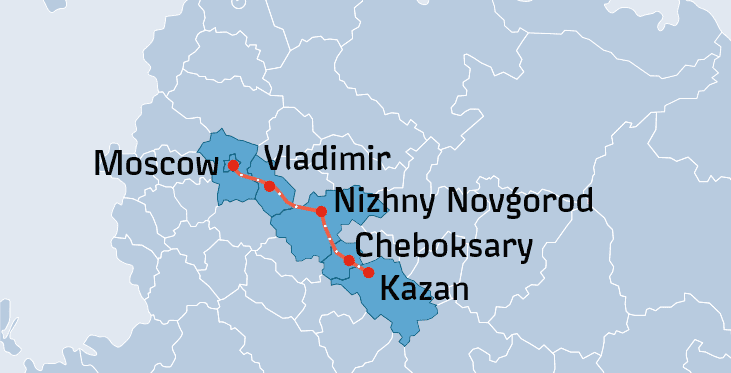
The project is aimed to support transportation of 15 mln tonnes of cargoes by 2020 via the Kyzyl–Kuragino railway line currently under construction, including coal shipments to a total of 12 mln tonnes from the Elegestskoye coal deposit to the Far Eastern ports. The required throughput capacity on the section is 45 train pairs per day to the east and 32 train pairs per day to the west.
The total cost of the project is RUB 45.6 billion. The Russian Railways Investment Programme for 2018 provides for the allocation of RUB 6.8 billion for the project, including RUB 1.7 billion by Russian Railways and RUB 5 billion from the federal budget.
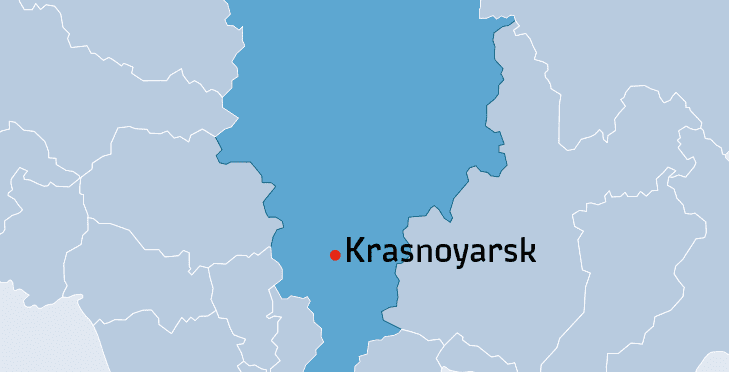
The investment project is aimed at increasing the throughput capacity and passenger traffic within the Moscow Transport Hub by launching diametrical intracity railway routes as per the updated General Moscow Railway Hub Development Plan.
The total cost of the project is estimated at RUB 155.4 billion. The Russian Railways Investment Programme for 2018 provides for the allocation of RUB 5.1 billion for the project, including RUB 400 million by Russian Railways and RUB 4.7 billion by the city of Moscow.
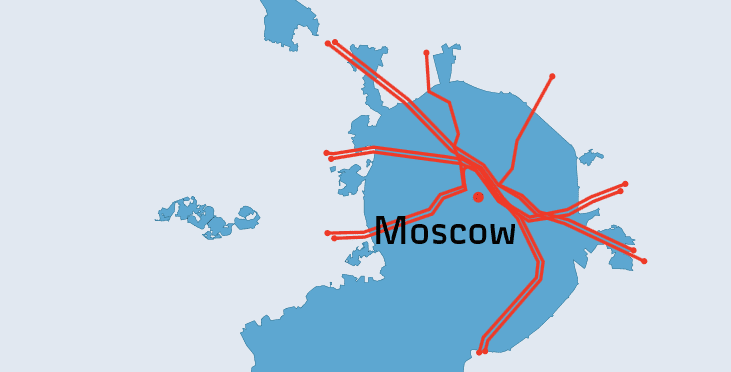
The investment project is aimed at constructing the Northern Latitudinal Railway connecting the Northern Railway and Sverdlovsk Railway. The Northern Latitudinal Railway will become part of the Arctic transport system and infrastructure shortening transport routes between the fields in the north of Western Siberia and ports in the Baltic, White, Barents, and Kara Seas, and facilitating the development of the Russian Arctic. The project is implemented in pursuance of instructions of the President of the Russian Federation.
Railway stations in the north of the Ural Federal District are projected to generate 50 million tonnes of freight traffic by 2025 (up 12 million tonnes vs 2015).
The total cost of the project is estimated at RUB 235.9 billion. The Russian Railways Investment Programme for 2018 provides for the allocation of RUB 2.7 billion for the project by Russian Railways.
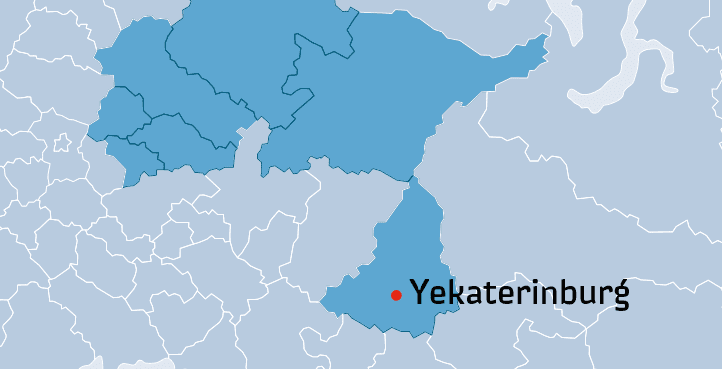
To minimise the risks associated with freight traffic related to the Azov-Black Sea basin ports, construction of a western bypass for the congested Saratov railway hub is required in addition to the activities outlined in the project of the development and renovation of the railway infrastructure serving ports of the Azov and Black Seas.
The project’s Phase 1 cost is estimated at RUB 25.9 billion. Phase 2 of the project will be finalised once the updated cargo base data is available for the ports of the Azov-Black Sea basin. The Russian Railways Investment Programme for 2018 provides for the allocation of RUB 1.7 billion for the project by Russian Railways.
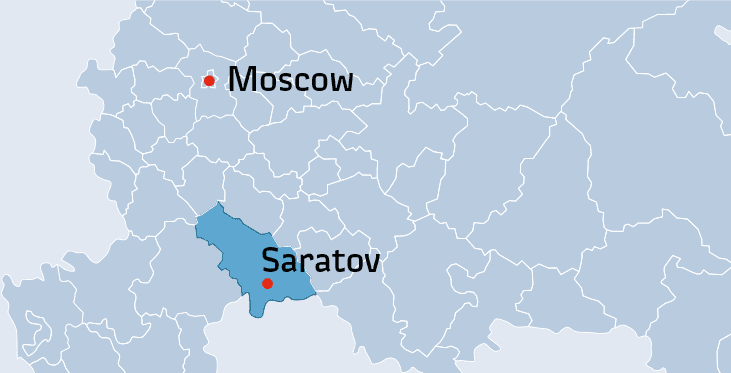
The new railway line will connect the Selikhin station on the Komsomolsk-on-Amur – Vanino section and the bridge across the Nevelski Strait, and run further to the Nysh station on Sakhalin Island. The total length of the new railway link between the Selikhin station on the mainland and the Nysh station on Sakhalin Island is 585 km, including the 6-km long bridge.
The construction of the Selikhin–Nysh railway line will enable:
- capacity expansions for existing ports on Sakhalin Island
- new transshipment opportunities to support transit flows from Kazakhstan and Mongolia
- implementation of resource development projects within the attraction zone along the new railway line
- significant boost to the economic development of the Sakhalin Region and the entire Far Eastern Federal District.
The total cost of the project is estimated at RUB 386.6 billion.The Russian Railways Investment Programme for 2018 provides for the allocation of RUB 1 billion for the project by Russian Railways.
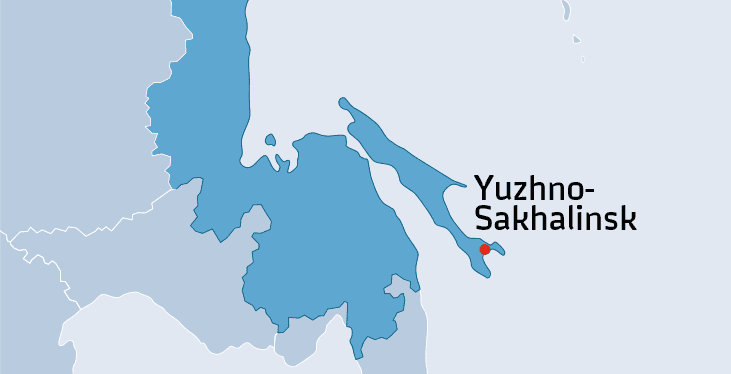
The project is aimed at cutting fuel and energy costs, reducing freight train travel times, speeding up freight delivery, and increasing the throughput capacity on the Rtishchevo–Kochetovka section of the rail network. The General Railway Network Development Plan of Russian Railways provides for 39 train pairs passing the Rtishchevo–Kochetovka section per day by 2025.
The total cost of the project is estimated at RUB 15.8 billion. The Russian Railways Investment Programme for 2018 provides for the allocation of RUB 760 million for the project by Russian Railways.
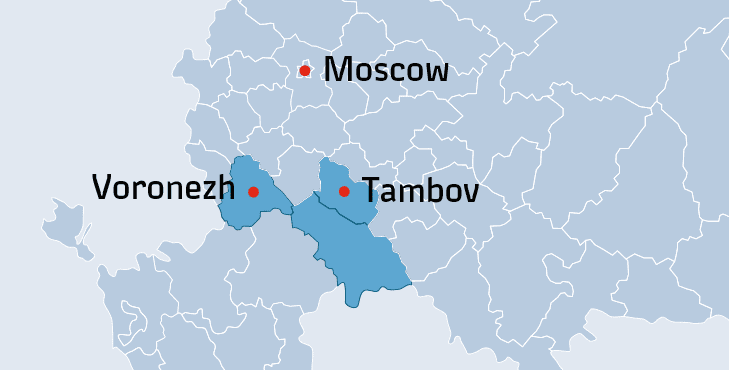
The project is aimed at rerouting 27 train pairs from the Kazan route to the Pavelets route of the Moscow Railway and increasing to 65 train pairs the throughput capacity of passenger trains on the Uzlovaya–Yelets section of the rail network.
The total cost of the project is estimated at RUB 18.5 billion. The Russian Railways Investment Programme for 2018 provides for the allocation of ca. RUB 738 million for the project by Russian Railways.
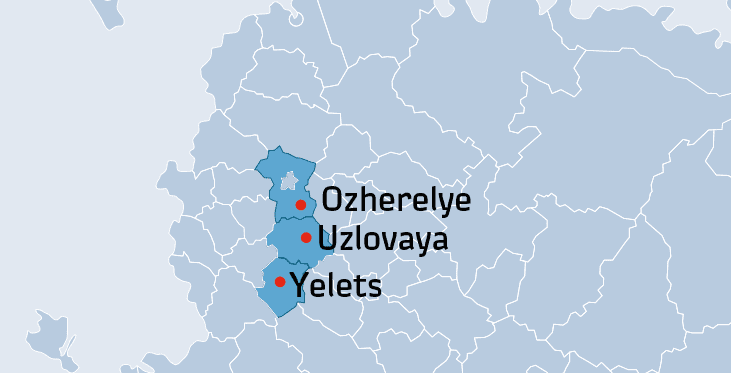
The project is aimed at the construction of a new Perm bypass railway, including the construction of a railway bridge across the Kama River and a 25-km two-track electrified bypass. The throughput capacity on the new bypass railway will be ca. 61 train pairs in both directions.
The total cost of the project is estimated at RUB 15.7 billion. The Russian Railways Investment Programme for 2018 provides for the allocation of RUB 423 million for the project by Russian Railways.
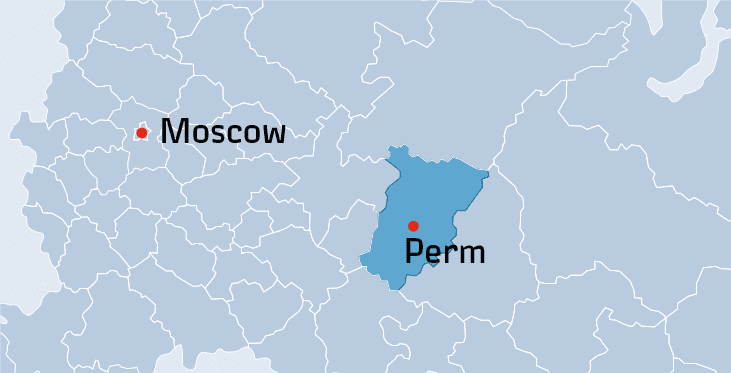
The project is aimed at enabling increased freight traffic between Solikamsk and Perm Marshalling Yard. The project is being finalised through consultations between various relevant units.
The cost of the project is estimated at RUB 13.7 billion. The Russian Railways Investment Programme for 2018 provides for the allocation of ca. RUB 337 million for the project by Russian Railways.
